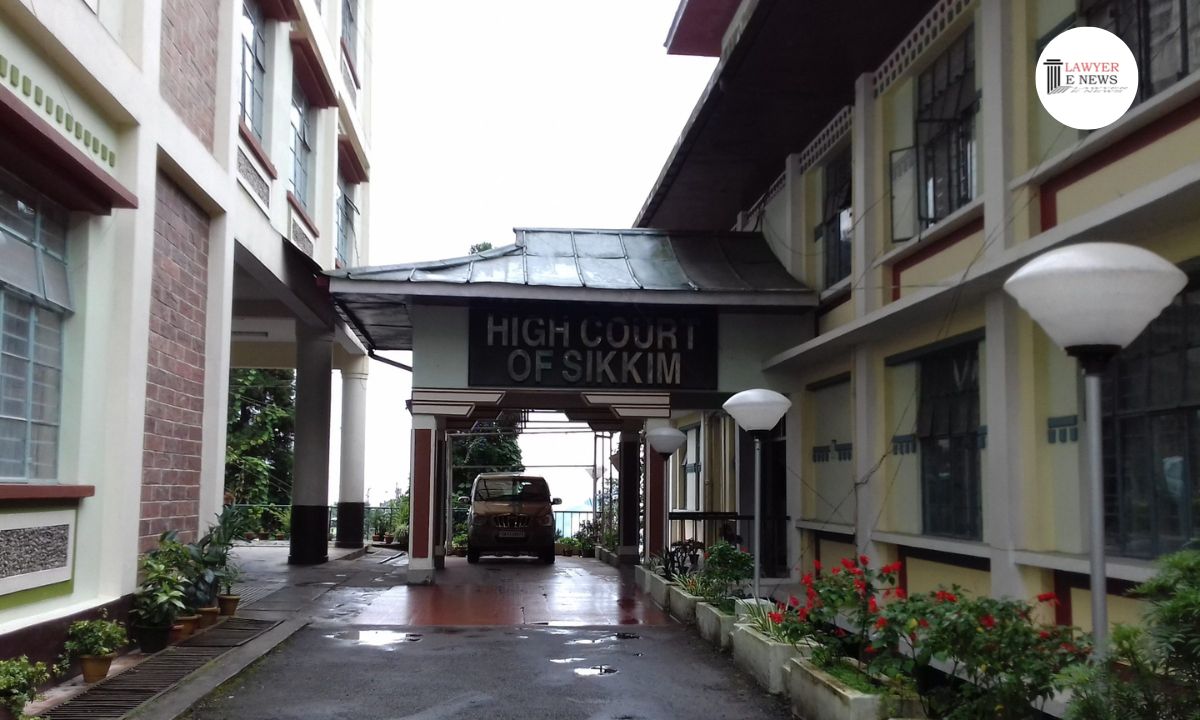-
by Admin
15 February 2026 5:35 AM



High Court corrects trial court’s jurisdictional error, emphasizes the proper application of Order XIV, Rule 2 of CPC.
The High Court of Sikkim has set aside an order from the Senior Civil Judge, Gangtok, which determined the maintainability of a suit as a preliminary issue based on an alleged admission during cross-examination. Justice Bhaskar Raj Pradhan, presiding over the case, emphasized that preliminary issues must be purely of law unless facts are clearly admitted in the pleadings. The decision underscores the High Court’s role in correcting jurisdictional errors and clarifying procedural applications under the Code of Civil Procedure (CPC).
The case involved Phigu Tshering Bhutia (the petitioner) challenging an order dated April 11, 2023, by the Senior Civil Judge, Gangtok. The trial court had decided the maintainability of the respondents’ suit as a preliminary issue under Order XIV, Rule 2 of the CPC, based on an alleged admission made by plaintiff no.1 during cross-examination. The petitioner, dissatisfied with this decision, filed a petition under Article 227 of the Constitution of India, arguing that the trial court erred in treating a mixed question of fact and law as a preliminary issue.
Credibility of Admissions During Cross-Examination:
Justice Bhaskar Raj Pradhan emphasized that the trial court misapplied Order XIV, Rule 2 of the CPC by relying on selective portions of the plaintiff’s cross-examination. The court noted, “The admission was not in the pleadings or the evidence on affidavit. It was derived from an extensive cross-examination, which showed the plaintiff was uncertain about the dates he visited the DC office.”
The court reiterated that Order XIV, Rule 2 permits the determination of preliminary issues purely of law, provided the facts are admitted in the pleadings. The judgment stated, “The provision confers no jurisdiction on the court to decide a mixed question of fact and law unless the facts are clear from the plaint itself.”
The High Court extensively discussed precedents, including Sukhbiri Devi & Ors. Vs. Union of India and Nusli Neville Wadia vs. Ivory Properties & Ors., emphasizing the correct application of Order XIV, Rule 2. Justice Pradhan remarked, “In cases where the question of law depends on disputed facts, it cannot be decided as a preliminary issue. The trial court erred in treating a mixed question of fact and law as a preliminary issue.”
Justice Bhaskar Raj Pradhan observed, “The final determination of whether the suit of the plaintiff is maintainable in law must be considered along with other issues at the trial’s conclusion. The impugned order dated April 11, 2023, is hereby set aside.”
Conclusion: The High Court’s decision to set aside the trial court’s order and reject the application under Order XIV, Rule 2 of the CPC underscores the importance of distinguishing between pure questions of law and mixed questions of fact and law. By correcting this jurisdictional error, the judgment reaffirms the procedural safeguards in civil litigation and ensures that preliminary issues are appropriately determined. This ruling is expected to influence future cases, reinforcing the necessity for clear factual admissions before treating any issue as purely of law.
Date of Decision: July 02, 2024
